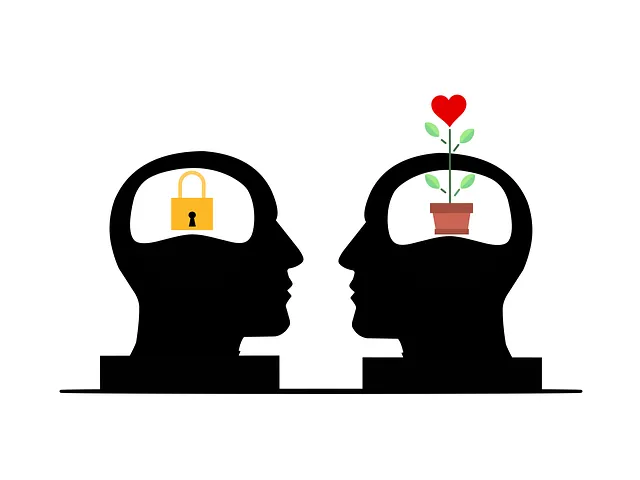The Kaiser Permanente Mental Health Access Center in Lafayette prioritizes cultural competency, recognizing its vital role in providing equitable mental health services. Through tailored programs, awareness campaigns, and training, the center addresses cultural barriers, offering crisis support, stress management, and depression prevention sensitive to diverse needs. Interactive workshops, multicultural case studies, and community outreach strengthen healthcare providers' cultural sensitivity, improving patient access and satisfaction, especially for mental health services. Evaluating training impact through surveys shows enhanced patient engagement and wellness outcomes, demonstrating the center's commitment to revolutionize healthcare delivery for all communities.
Cultural competency training is an evolving necessity in modern healthcare, especially with diverse communities seeking access to services. This article explores this critical aspect, offering a comprehensive guide on enhancing cultural awareness among healthcare providers. We examine successful models, such as the Kaiser Permanente Mental Health Access Center in Lafayette, and its innovative approach to training.
Key topics include overcoming barriers to mental health services for diverse groups, effective educational strategies, and evaluating the impact of cultural competency programs.
- Understanding Cultural Competency in Healthcare: A Necessity in Modern Practice
- The Kaiser Permanente Mental Health Access Center: A Model for Training
- Addressing Barriers: Improving Access to Mental Health Services for Diverse Communities
- Effective Training Strategies: Engaging and Educational Techniques
- Measuring Success: Evaluating the Impact of Cultural Competency Programs
Understanding Cultural Competency in Healthcare: A Necessity in Modern Practice

Cultural competency is an essential aspect of modern healthcare practice, reflecting a deep understanding and appreciation of diverse cultural backgrounds and traditions among patients. In today’s diverse society, healthcare providers at institutions like the Kaiser Permanente Mental Health Access Center in Lafayette must be equipped to deliver culturally sensitive care. This involves recognizing and respecting individual and community beliefs, values, and practices, ensuring equitable access to mental health services for all.
The importance of cultural competency is particularly evident when addressing issues such as depression prevention and mindfulness meditation, where awareness of cultural nuances can significantly impact treatment effectiveness. Public awareness campaigns development that consider these cultural factors can help reduce stigma and improve mental health outcomes. By fostering a culturally competent environment, healthcare providers can create a safe and welcoming space for patients to seek support, encouraging open communication and ultimately enhancing the overall quality of care.
The Kaiser Permanente Mental Health Access Center: A Model for Training

The Kaiser Permanente Mental Health Access Center in Lafayette stands as a commendable model for cultural competency training within healthcare. This innovative center has successfully integrated various programs to address mental health concerns, especially among diverse communities. By offering comprehensive services, it not only enhances access to care but also fosters an environment that respects and understands the unique cultural needs of individuals.
The center’s approach includes public awareness campaigns that target specific demographics, ensuring that everyone is educated on mental health matters. They facilitate workshops and sessions focused on coping skills development, which equips people with the tools to navigate stress and traumatic experiences. Furthermore, their trauma support services cater to those who have endured adverse events, providing a safe space for healing and recovery. This holistic strategy exemplifies how cultural competency training can transform healthcare delivery, making it more inclusive and sensitive to the diverse populations it serves.
Addressing Barriers: Improving Access to Mental Health Services for Diverse Communities

In many communities, there are significant barriers to accessing mental health services, particularly for diverse populations. This issue has been a growing concern, underscoring the need for comprehensive cultural competency training within healthcare systems. For instance, the Kaiser Permanente Mental Health Access Center in Lafayette has recognized these challenges and taken steps to improve care. By providing tailored programs and resources, they aim to address disparities and ensure that all individuals, regardless of their cultural background or socioeconomic status, can receive the necessary support for their mental well-being.
One crucial aspect of this initiative is offering Crisis Intervention Guidance adapted to diverse cultures. Additionally, the center promotes Stress Management techniques and Depression Prevention programs that are sensitive to the unique experiences of different communities. These efforts not only enhance access but also foster a more inclusive environment where individuals feel comfortable seeking help for their mental health concerns.
Effective Training Strategies: Engaging and Educational Techniques

Effective training strategies are essential for enhancing healthcare provider cultural competency, especially at centers like the Kaiser Permanente Mental Health Access Center in Lafayette. Engaging and educational techniques, such as interactive workshops, role-playing scenarios, and multicultural case studies, allow providers to develop empathy and build bridges between diverse patient populations. These methods encourage active participation, fostering a deeper understanding of different cultural perspectives and beliefs.
One innovative approach is incorporating community outreach program implementations into the training curriculum. By inviting guest speakers from various cultural backgrounds and communities served by the center, trainees gain firsthand insights. This not only strengthens their cultural awareness but also inspires them to integrate these learnings into their daily practice. Empathy-building strategies, when combined with real-world exposure, ensure that healthcare providers are equipped to offer culturally sensitive care, thereby improving patient access and satisfaction, particularly in mental health services.
Measuring Success: Evaluating the Impact of Cultural Competency Programs

Measuring the success of cultural competency training programs is essential to understanding their true impact and effectiveness. At the Kaiser Permanente Mental Health Access Center in Lafayette, for instance, evaluations have shown significant improvements in healthcare providers’ cultural sensitivity and patient outcomes. By implementing tailored training modules that emphasize emotional intelligence and mindfulness meditation, the center has fostered a more inclusive environment.
These assessments often include pre- and post-training surveys to gauge shifts in attitudes and knowledge. The data collected reveals better patient engagement, improved communication, and enhanced mental wellness outcomes among diverse patient populations. Such positive changes underscore the value of these programs, demonstrating their potential to revolutionize healthcare delivery and promote equitable access to mental health services.
Cultural competency training in healthcare, as exemplified by the Kaiser Permanente Mental Health Access Center in Lafayette, is a vital strategy for improving access to services for diverse communities. By understanding cultural nuances and addressing barriers, healthcare providers can create more inclusive environments. Effective training strategies that engage and educate staff not only enhance patient outcomes but also foster stronger connections within these communities. Measuring the impact of these programs is crucial to continue refining and improving healthcare delivery, ensuring that everyone receives quality care tailored to their unique cultural needs.






